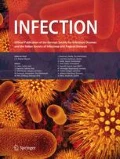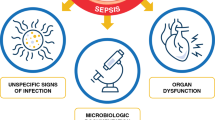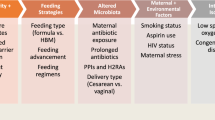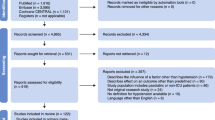Summary
In adult postoperative intensive care patients, the biallelic Ncol polymorphism within the tumor necrosis factor (TNF) locus has been shown to be a genomic marker for individuals with increased TNF-α response and poor prognosis in severe sepsis. We characterized the genomic distribution and allele frequency of the Ncol polymorphism in 23 preterm and term neonatal intensive care unit (NICU) patients with culture-proven sepsis and compared it with clinical and laboratory characteristics to assess its prognostic value for disease progression.
Genotype analysis demonstrated the following absolute (relative) frequencies: 7 (0.31) infants were homozygous for the allele TNFB2 (Group A). 12 (0.52) infants were heterozygous (TNFB1/TNFB2) and four (0.17) infants homozygous for the allele TNFB1 (Group B). There was no significant difference compared to adult intensive care patients with severe sepsis (p = 0.31). The median gestational age of all infants (13 female and ten male) as well as for either group was 28 weeks (range 23–37) with a median birth weight of 845 g (range 560–2,720). The study population included a total of 16 very low birth weight (VLBW) infants, four in Group A and 12 in Group B. However, there was no significant difference for gestational age and birth weight in both groups (p = 0.82 and 0.71, respectively). Laboratory parameters as maximum and minimum leukocyte and thrombocyte counts, maximum immature to total neutrophil ratios (ITR), maximum C-reactive protein (CRP) levels, days of CRP levels > 5 mg/l and total days of antibiotic treatment, were not statistically different in both groups. In total, three infants (13%) died in consequence of their underlying disease. Two infants belonged to Group A and one to Group B. The statistical analysis of outcome variables (mortality, neurological impairment, failure to thrive) was not possible, because the study population was small and the reasons for poor outcome and death in these high-risk patients had to be considered multifactorial. In conclusion, in this pilot study the biallelic Ncol polymorphism within the TNF locus was not a prognostic marker for disease progression in high-risk NICU-admitted term and preterm infants with culture-proven sepsis. In order to detect differences in outcome similar to adult postsurgical patients with severe sepsis, an unfeasibly high number of NICU patients with culture-proven sepsis would need to be included for a similar study.
Similar content being viewed by others
Author information
Authors and Affiliations
Additional information
Received: September 28, 1999 · Revision accepted: January 25, 2000
Rights and permissions
About this article
Cite this article
Weitkamp, J., Stüber, F. & Bartmann, P. Pilot Study Assessing TNF Gene Polymorphism as a Prognostic Marker for Disease Progression in Neonates with Sepsis. Infection 28, 92–96 (2000). https://doi.org/10.1007/s150100050053
Issue Date:
DOI: https://doi.org/10.1007/s150100050053




